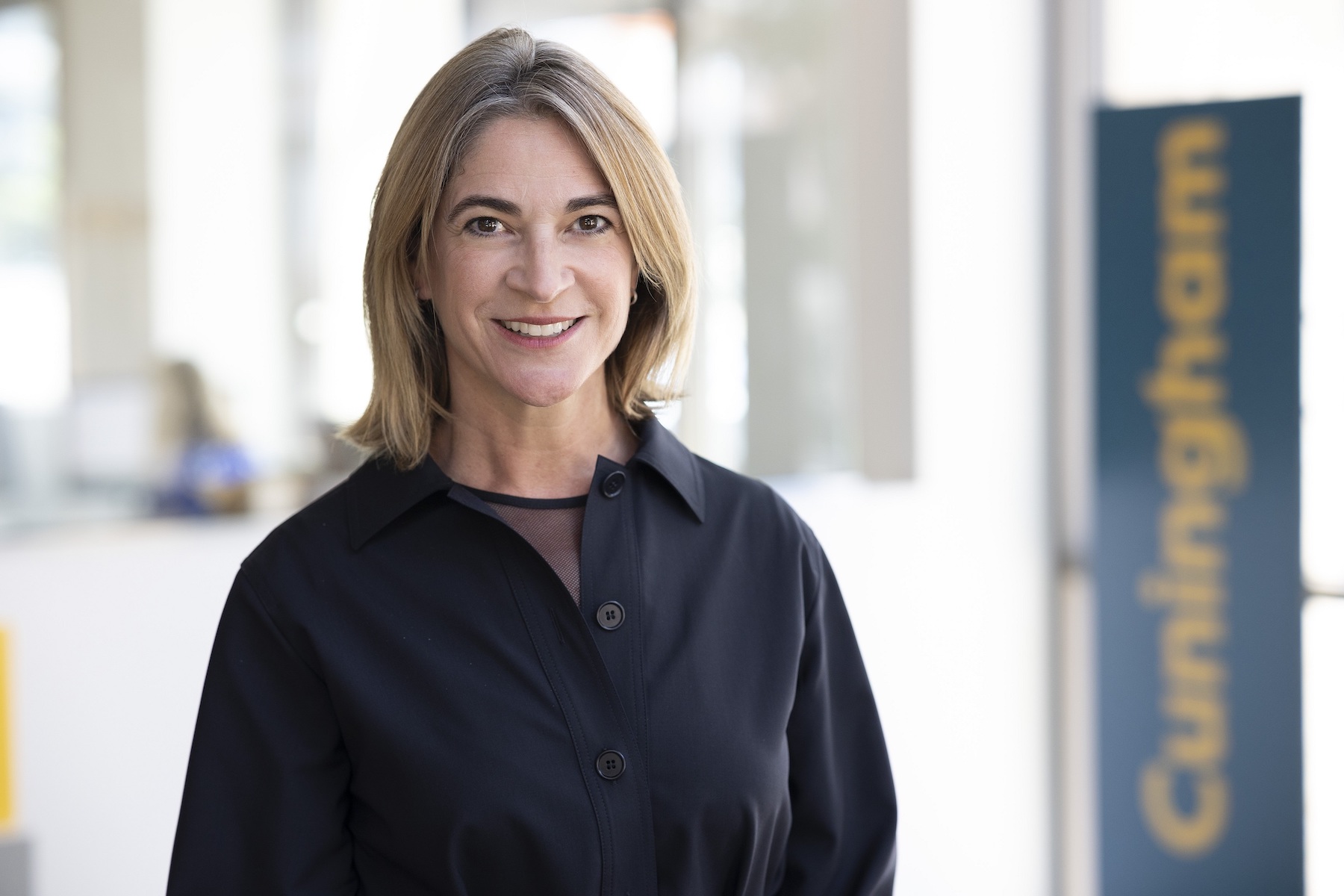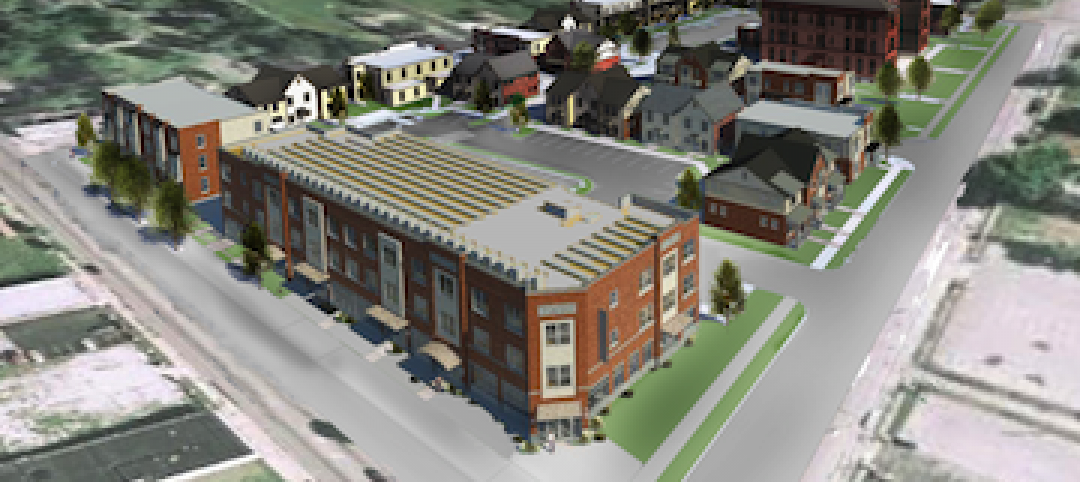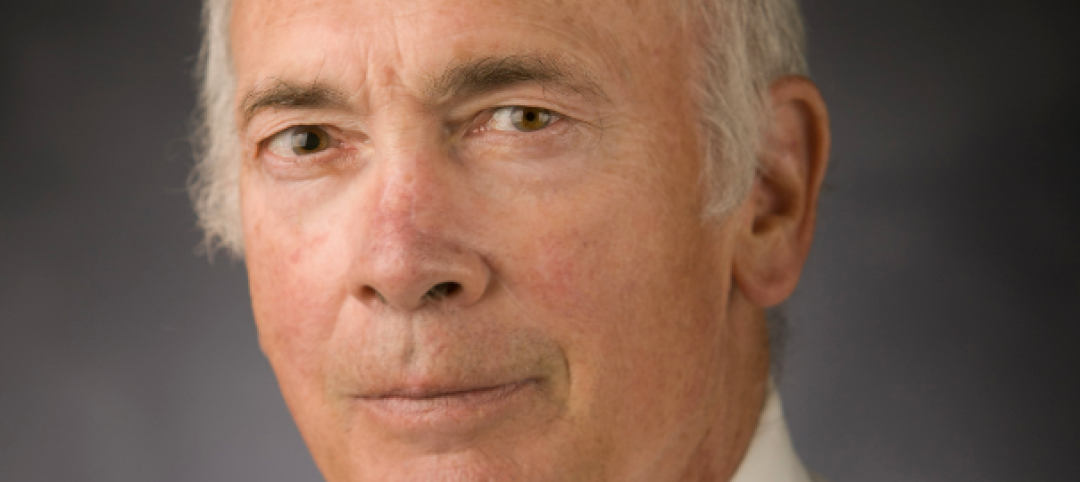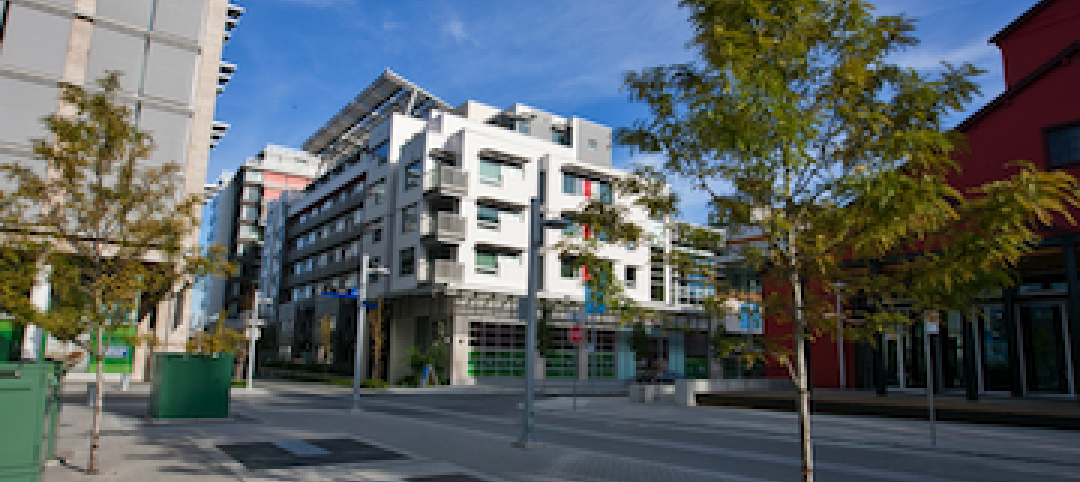Cuningham, a national design firm, is thrilled to announce the appointment of Jacqueline Dompe as the firm’s Chief Executive Officer (CEO).
Dompe will collaborate with Cuningham’s internal and external stakeholders to oversee the firm’s strategic direction and value.
“We are thrilled to have Jacqui join the Cuningham team,” says Board Chair Margaret Parsons, FAIA. “Her deep commitment to driving positive change and her proven track record aligning brand with successful business outcomes will be invaluable to our firm as we position ourselves in a rapidly changing industry.”
Dompe has more than 20 years of experience delivering value for a variety of companies, including those in the Architecture/Engineering/Construction (AEC) industry. She has earned a reputation over her career for being future-focused and committed to progressive solutions.
“What attracted me to Cuningham was a clear and genuine shared belief throughout the firm that design must be regenerative, achieve ecological benefit, and promote social well-being,” says Dompe. “I am eager to continue influencing a healthy culture while growing the awareness of the value of our work — and of course have lots of fun along the way.”
Cuningham Director of Strategy and Board Member Jeffrey Mandyck, AIA, praises both Dompe’s strengths as a leader and her ability to question and elevate the firm’s thinking, processes, and outcomes.
“We are honored to have Jacqui lead Cuningham’s strategic planning,” says Mandyck. “On both an individual and firm-wide level, we are excited to be challenged in finding new ways to produce a clear synchronization between who Cuningham wants to be and who we are.”
Previously, Dompe has held strategic business executive roles for technology start-up companies, regional minority-owned businesses, and global fortune 200 companies, including AECOM and JLL. Her work has influenced a wide variety of project types, including healthcare facilities, sports and entertainment venues, commercial development, and public infrastructure.
“With so many great people and opportunities here at Cuningham, I am excited to begin tackling the dynamic forces, internal and external, that our clients face,” says Dompe. “Together, we will better position the firm to anticipate how these forces impact our clients' businesses and provide greater value through a holistic approach to design solutions.”
Dompe holds a Bachelor of Arts in in Business Administration and Environmental Studies from the University of San Diego and a Professional Certificate in Urban Development & Planning from the University California San Diego.
Related Stories
| Nov 2, 2010
A Look Back at the Navy’s First LEED Gold
Building Design+Construction takes a retrospective tour of a pace-setting LEED project.
| Nov 2, 2010
Wind Power, Windy City-style
Building-integrated wind turbines lend a futuristic look to a parking structure in Chicago’s trendy River North neighborhood. Only time will tell how much power the wind devices will generate.
| Nov 2, 2010
Energy Analysis No Longer a Luxury
Back in the halcyon days of 2006, energy analysis of building design and performance was a luxury. Sure, many forward-thinking AEC firms ran their designs through services such as Autodesk’s Green Building Studio and IES’s Virtual Environment, and some facility managers used Honeywell’s Energy Manager and other monitoring software. Today, however, knowing exactly how much energy your building will produce and use is survival of the fittest as energy costs and green design requirements demand precision.
| Nov 2, 2010
Yudelson: ‘If It Doesn’t Perform, It Can’t Be Green’
Jerry Yudelson, prolific author and veteran green building expert, challenges Building Teams to think big when it comes to controlling energy use and reducing carbon emissions in buildings.
| Nov 2, 2010
Historic changes to commercial building energy codes drive energy efficiency, emissions reductions
Revisions to the commercial section of the 2012 International Energy Conservation Code (IECC) represent the largest single-step efficiency increase in the history of the national, model energy. The changes mean that new and renovated buildings constructed in jurisdictions that follow the 2012 IECC will use 30% less energy than those built to current standards.
| Nov 1, 2010
Sustainable, mixed-income housing to revitalize community
The $41 million Arlington Grove mixed-use development in St. Louis is viewed as a major step in revitalizing the community. Developed by McCormack Baron Salazar with KAI Design & Build (architect, MEP, GC), the project will add 112 new and renovated mixed-income rental units (market rate, low-income, and public housing) totaling 162,000 sf, plus 5,000 sf of commercial/retail space.
| Nov 1, 2010
John Pearce: First thing I tell designers: Do your homework!
John Pearce, FAIA, University Architect at Duke University, Durham, N.C., tells BD+C’s Robert Cassidy about the school’s construction plans and sustainability efforts, how to land work at Duke, and why he’s proceeding with caution when it comes to BIM.
| Nov 1, 2010
Vancouver’s former Olympic Village shoots for Gold
The first tenants of the Millennium Water development in Vancouver, B.C., were Olympic athletes competing in the 2010 Winter Games. Now the former Olympic Village, located on a 17-acre brownfield site, is being transformed into a residential neighborhood targeting LEED ND Gold. The buildings are expected to consume 30-70% less energy than comparable structures.
| Oct 27, 2010
Grid-neutral education complex to serve students, community
MVE Institutional designed the Downtown Educational Complex in Oakland, Calif., to serve as an educational facility, community center, and grid-neutral green building. The 123,000-sf complex, now under construction on a 5.5-acre site in the city’s Lake Merritt neighborhood, will be built in two phases, the first expected to be completed in spring 2012 and the second in fall 2014.















